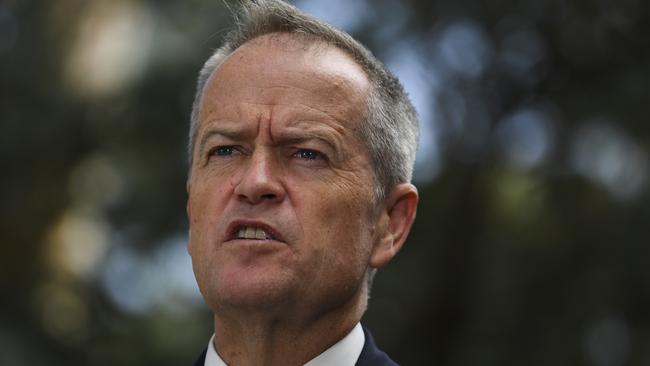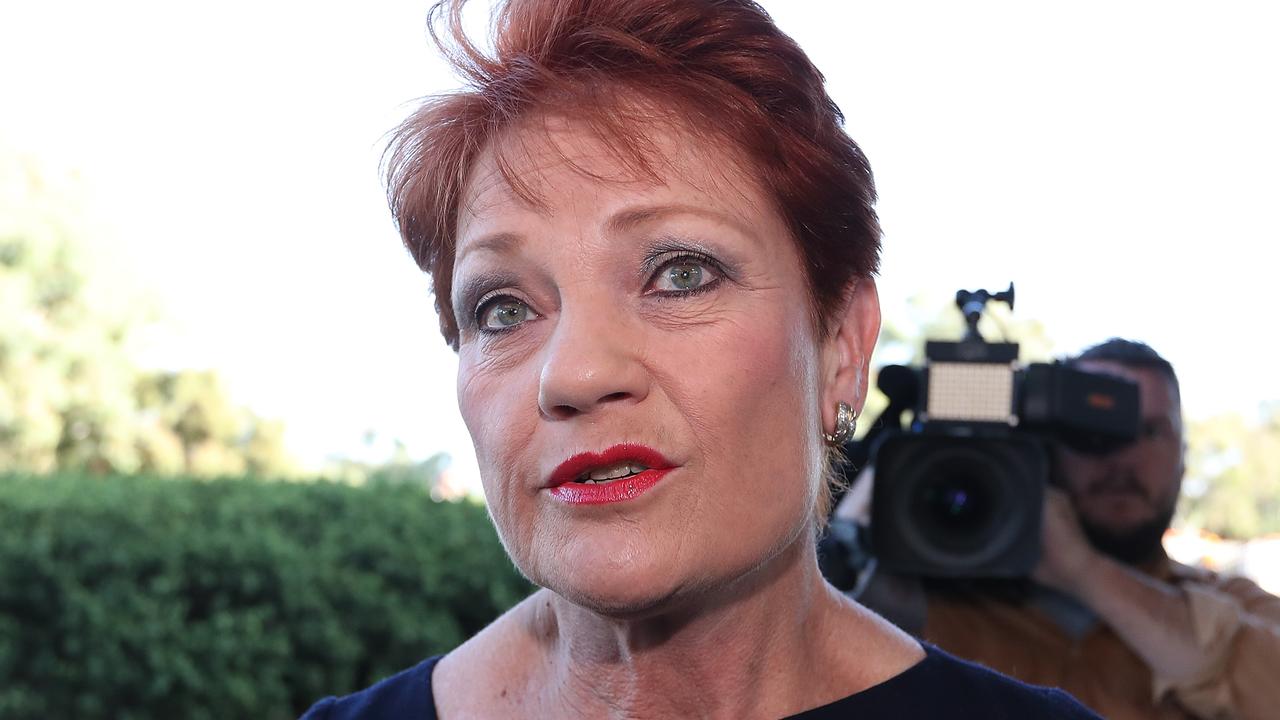Medivac fallback for US-barred refugees
The Morrison government says 265 offshore detainees rejected by the US for resettlement could now seek entry to Australia.

The US has rejected 265 people from offshore detention for resettlement — either on security grounds or because of a failure to meet refugee criteria — with the Morrison government claiming those passed over could now seek entry to Australia under Bill Shorten’s new medivac laws.
The US rejection emerged as the Opposition Leader’s plan to fast-track refugee medical transfers to Australia was dealt a major blow yesterday, with the Nauruan government confirming it had enacted new laws limiting medical evacuations and banning remote assessments.
The director-general of ASIO, Duncan Lewis, also used a Senate estimates hearing yesterday to sound the alarm on the medivac bill’s 72-hour timeframe in which security checks must be conducted for potential transferees.
“If the person has a different kind of background, where they have come from some place and the records may not be complete, it can take months and months and months,” he said.
“We would typically have to go to second and third countries to test their holdings on the individual, and that takes time … it can be several months.”
Department of Home Affairs secretary Michael Pezzullo went further last night, warning the medivac bill threatened the future of offshore processing. He told Senate estimates that following a review of the legislation last week: “It continued to be our view that this would potentially signal … the effective unravelling of regional processing. It is our judgment that most people (held on Manus Island and Nauru) will come here.”
The government yesterday confirmed that 265 people had received a negative decision by US authorities — amounting to almost a quarter of the 1200 the US agreed to take under the deal agreed with former president Barack Obama and reluctantly confirmed by Donald Trump.
It is understood most were rejected after security checks, with the rest being refused because they did not meet the US requirement for protection. A further 95 had withdrawn from the process.
The government is expected to seize on the US concerns today as further evidence that the medivac bill undermines Australia’s security, with the expectation some of those rejected will seek entry to Australia through medical transfers.
The enactment by Nauru of new laws relating to medical transfers is a direct response to the medivac bill that passed in parliament last week when Labor combined with the Greens and independents to inflict the first defeat over legislation against a government in the House of Representatives in nearly 80 years.
In an assertion of sovereignty by the tiny Pacific Island nation, the new laws effectively outlaw one of the main planks of the new medivac law — championed by independent Kerryn Phelps — by banning medical transfers based on overseas “telemedicine” assessments. Nauru’s Justice Minister, David Adeang, said: “Nauru passes laws in the best interests of Nauru. This is a fundamental right of sovereignty, mutual respect and co-operation.
“We look forward to continuing to work closely with Australia in order to assure security for the Pacific region.”
In a separate statement provided to The Australian, the government of Nauru said its level of medical care had been “praised by international experts who have visited our nation”.
“The only people who are critical are activists and sections of the media who are driven not by facts or objectivity, but by politics and ideology. This law reflects the reality of this high-quality care.”
The Health Practitioners (Overseas Medical Referrals Compliance) regulations 2019 prevents the Nauruan medical referrals committee from approving transfers based on “telemedicine examination or diagnosis”.
This will render useless any doctor consultations conducted by video communication with refugees and asylum-seekers.
Scott Morrison yesterday said Labor had voted for the medivac bill to win a “cheap vote” on the floor of parliament and “play to the Canberra bubble” instead of standing up for strong border-protection policies. He said the Opposition Leader had created a medical justification to achieve the political goal of dismantling offshore processing, noting there was a ratio of one medical professional for every seven people on Nauru.
“The medical professionals are there. The children are off. So what this is about — let’s make no mistake — is about shutting down offshore processing,” the Prime Minister said. “That’s what Labor voted for. They did it with their eyes wide open.”
Home Affairs Minister Peter Dutton used question time to attack Mr Shorten for being “weaker” than Kevin Rudd and Julia Gillard “put together” on border protection.
Additional reporting: Greg Brown





